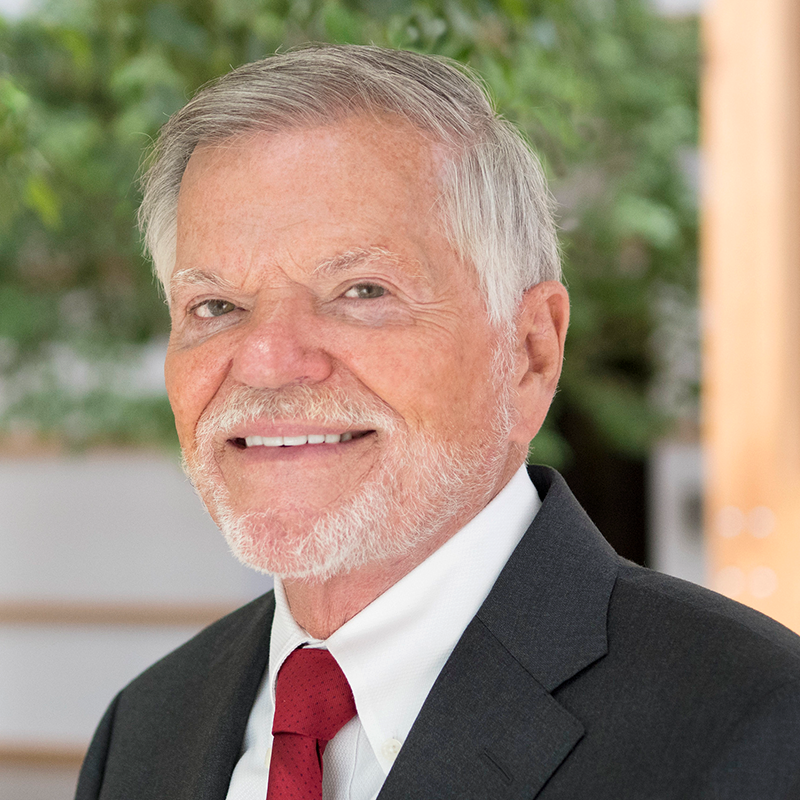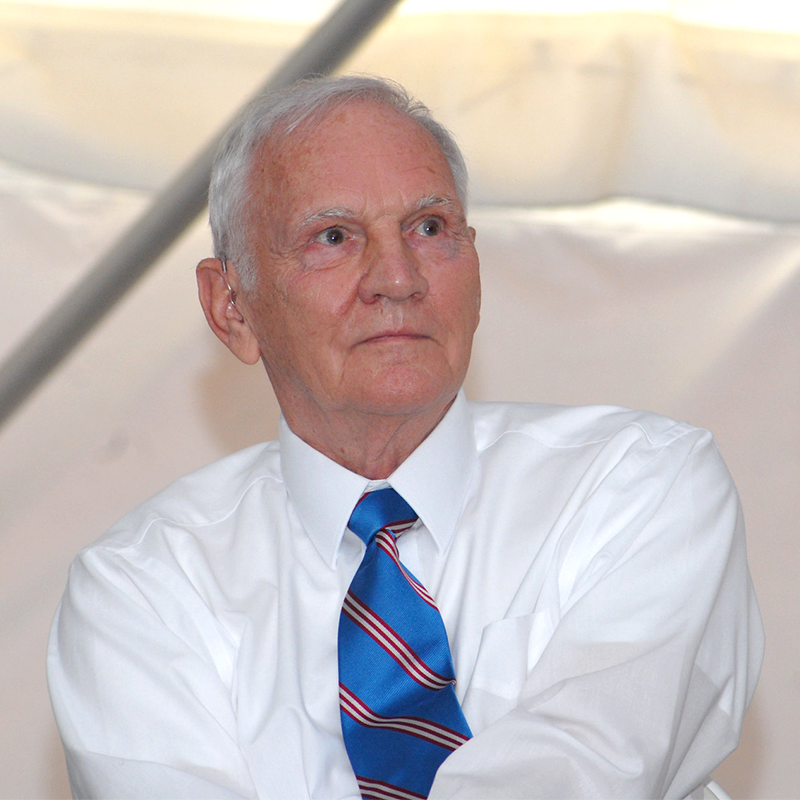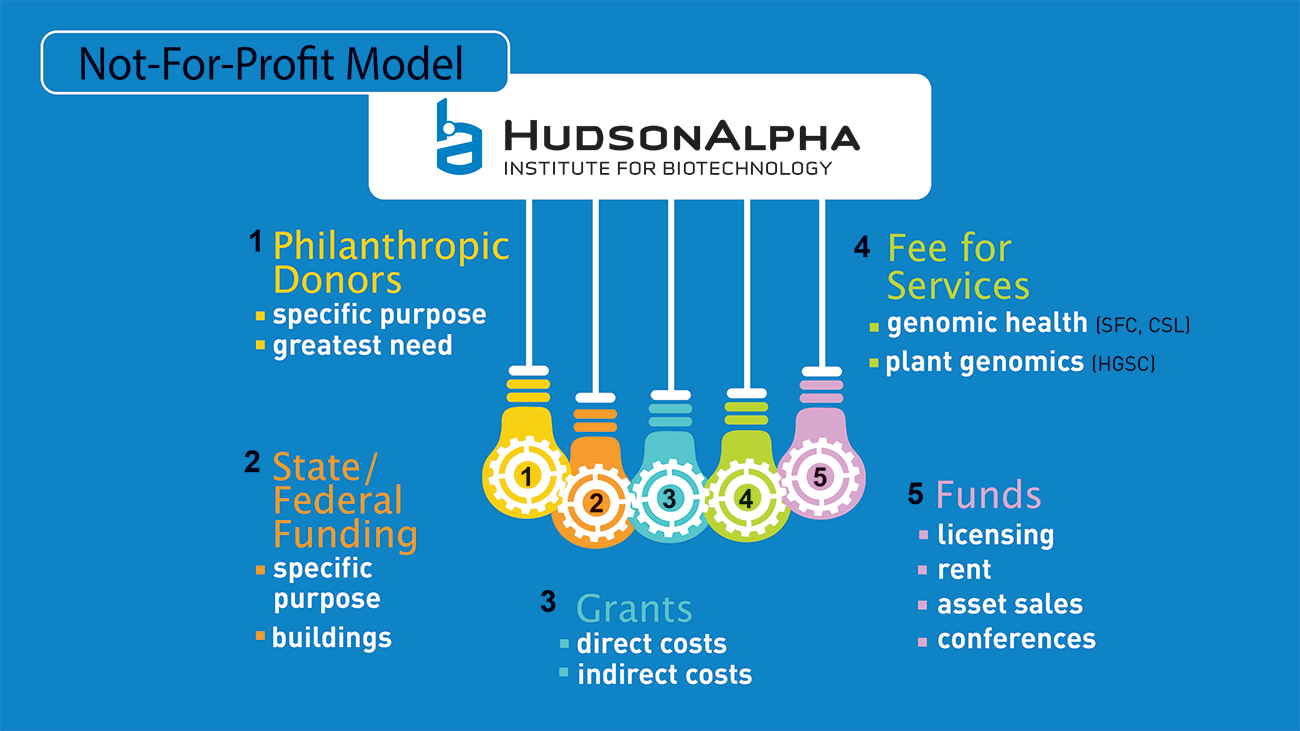The Story of HudsonAlpha
The HudsonAlpha Institute for Biotechnology’s mission is to use genomics to improve the life. We do this by conducting genomics-based research to improve human health and well being; sparking entrepreneurship and economic development; and providing educational outreach to nurture the next generation of biotech researchers and entrepreneurs, as well as to create a biotech literate public.
HudsonAlpha is the brainchild of founders James R. Hudson, Jr. and the late Lonnie S. McMillian, who passed away in 2018. Both men enjoyed career paths that led them to understand the promise of genomics and both possessed the drive to translate that promise into measurable, real world results. The announcement of the creation of the nonprofit Institute came in 2005, and the doors opened in 2008. Lonnie McMillian’s incredible generosity, along with the State of Alabama, provided the funding needed to make the HudsonAlpha Institute for Biotechnology a reality.
Drawing on their experience and envisioning a course for the future, Hudson and McMillian recognized that four ingredients are essential for improving human health and well-being: education, research-driven discovery, clinical care, and entrepreneurship. HudsonAlpha unites these four endeavors into a single enterprise. Since the Institute’s 2008 opening, HudsonAlpha has generated major discoveries that impact disease diagnosis and treatment, created intellectual property, created a clinical genomic health program, fostered biotechnology companies, and expanded the number of biosciences-literate people, many of whom will be the future workforce.

James R. Hudson, Jr.
Co-founder and Chairman Emeritus of the HudsonAlpha Institute for Biotechnology
Equal parts scientist and businessman, Jim Hudson’s investments have shaped the advancement of biotechnology around the world—and especially in the state of Alabama. From early in life, Hudson pursued understanding and knowledge through education and experience. The Huntsville native graduated from Huntsville High School and earned a bachelor’s degree in chemistry in 1963 and a master’s in physics in 1967 from The University of Alabama. After college, Hudson served as an officer and aviator in the U.S. Army. During his tour of duty in Vietnam, Hudson flew numerous missions over North Vietnam earning the Distinguished Flying Cross, the highest honor awarded to a military aviator.
Following his military service, Hudson joined his father and brother in building and operating what would become the most productive small foundry in the Southeast, Hudson Metals. Under his father’s tutelage, Hudson sharpened his business acumen. The family sold its successful business in 1982, opening the door for Hudson to explore his interest and education in science to be applied to developing new ways to make a transformative positive impact on the lives of people throughout the world.
Having inherited his father’s entrepreneurial spirit, Hudson had a plan for the next steps in his career. First, he returned to the classroom, earning a master’s degree in biology from The University of Alabama at Huntsville. Then, in 1987, he parlayed his education, business sense and $25,000 to found Research Genetics. His new company soon became the world’s leader in genetic linkage products and an integral partner in the Human Genome Project, an international effort coordinated by the U.S. Department of Energy and the National Institutes of Health that identified the sequence of the DNA found inside human cells. Hudson served as chief executive of Research Genetics until 2000 when the biotech icon was sold to Invitrogen Corporation, now ThermoFisher Scientific, Inc., for more than $130 million.
Having achieved such professional success, some would have simply retired, but Hudson saw the sale of his company as an opportunity to take the next steps in accelerating research and making the findings of that research available to the rest of the world in an expedient and cost-effective manner. And, he could think of no better partner in that endeavor than his friend Lonnie McMillian. McMillian was a visionary entrepreneur who led multiple telecommunications and biotechnology organizations to global success. Together, they turned their attention to creating an innovative home for scientific research where academia would work hand-in-hand with business leaders to leverage discovery-based research from academia into products and services for the commercial market. Their efforts produced the creation of HudsonAlpha Institute for Biotechnology only a few years later. In HudsonAlpha, Jim has realized his goal of improving human health and wellbeing through research, education and economic development.
Ever the optimist and a true believer in people, Hudson is a friend and mentor to countless scientists, entrepreneurs and artists in Alabama and far beyond its borders. His many contributions to the business, scientific, artistic and local communities have been honored with being named to the Alabama Business Hall of Fame, receiving the Alabama Innovation Lifetime Achievement Award from the Economic Development Partnership of Alabama, recognition as Entrepreneur Champion by the Women’s Business Center of North Alabama, and being presented the Special Council Legacy Award by the Alabama State Council on the Arts. Hudson is a founding board member of BIO Alabama, the Partnership for Biotechnology Research and countless biotech startups.
Hudson serves as adjunct professor at the UAH and is a member of the College of Science Advisory Council as well as the Board of Directors of the UAH Foundation. He is a member of the Huntsville Rotary Club and the Committee of 100. Hudson and his late wife, Susie, were the co-founders of CityScapes LLC, which focused on downtown revitalization. In 2011 Hudson married Lynn Lemay. Together, the couple have six children and seven grandchildren. Since they married they have taken up travel, having been around the world three times with National Geographic and made numerous international and domestic excursions.

Lonnie S. McMillian, Jr.
Co-founder and Chairman Emeritus of the HudsonAlpha Institute for Biotechnology
Some might say Lonnie McMillian could see the future, but it’s more accurate to say he shaped the future. McMillian was a visionary innovator and entrepreneur who led telecommunications and biotechnology organizations to global success throughout his storied career.
McMillian was first introduced to the technology field while serving in the U.S. Marine Corps during the Korean War. He received his business degree before reenlisting in the Marine corp during the Korean War. Upon discharge, he earned a bachelor’s degree in electrical engineering from Georgia Tech. His interests coupled with his education in both science and business led him to a wide array of professional opportunities in the electronics field.
Early in his career, McMillian co-founded Systems Engineering Labs, a company that built mini-computers, and he helped it grow into a successful venture that employed hundreds of people. That company’s 1981 sale kicked off a series of successful business ventures that culminated in 1986 with McMillian and Mark Smith co-founding ADTRAN, a publicly traded telecommunications company based in Huntsville. Under McMillian’s leadership, ADTRAN grew to become a global leader in networking and communications equipment. He was the inventor of numerous patented technologies used by ADTRAN for over three decades.
By the 1990s, McMillian had turned his attention to biotechnology and, following his 2001 retirement from ADTRAN, he immersed himself in the life sciences. Along the way he met Jim Hudson, then at Research Genetics, and the idea of a nonprofit institute to move basic discoveries into real-world applications for biotechnology began to take shape. Together, they founded HudsonAlpha Institute for Biotechnology with the vision to bring together experts in genetics, education, and entrepreneurship to accelerate innovation in the field. Sinceits opening in 2008, the Institute has positively impacted tens of thousands of lives across the globe through advancements in the fundamental understanding of the genome and the diagnosis and treatment of life-threatening diseases.
As the “Alpha” in HudsonAlpha, McMillian mentored countless aspiring entrepreneurs, giving generously of his time and talents in offering advice, guidance, and friendship on many aspects of business. He emphasized the importance of helping others, celebrating their success, maintaining a positive attitude, enjoying one’s work and always treating everyone with kindness and respect. Those qualities helped establish the Institute’s culture that thrives today.
McMillian’s philanthropic work through his nonprofit, Alpha Foundation, honored a long-standing commitment to Huntsville’s economic development and growth, yet his financial gifts that benefited so many were often made anonymously. Many recipients of his generosity never realized that he had provided a key charitable gift.
In 2014, McMillian was recognized by the Economic Development Partnership of Alabama with its Lifetime Achievement Award for his career-long commitment to innovation and his work to advance the state of Alabama.
When McMillian died in 2018, he left a legacy of improving the health of countless people across the world struggling with cancer, ALS and rare diseases. His vision has likewise improved agricultural pursuits and, perhaps most impressively, inspired and helped educate countless future scientists. He is survived by Helen, his wife of 64 years, daughters Barbara, Emily, and Sue, five grandchildren and three great-grandchildren.
As a non-profit institution, HudsonAlpha is funded through a combination of public and private dollars, including grants, donations, and fees for services.

